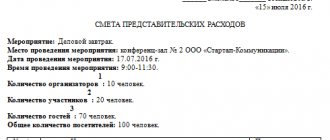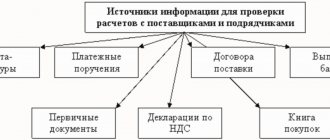In search of manifest unreasonableness // Reducing legal costs in the absence of objections from the other party
The Guarantor, in its recent publication, drew my attention to the Certificate on the results of summarizing the judicial practice of considering issues of payment for the services of representatives in civil cases by the courts of the Smolensk region for 2021 - the first half of 2021 (approved by the Presidium of the Smolensk Regional Court on 10/05/2020).
The Guarantor considered that paragraph 6 deserves attention, which states:
The absence of a written agreement on the provision of legal assistance does not in itself prevent the reimbursement of legal expenses for the services of a representative.
However, there is nothing particularly interesting about the idea that the payment of legal costs can be supported by various types of evidence and that a written contract does not necessarily have to be one of them. All this follows from the fact that the court evaluates evidence according to its inner conviction and no evidence has pre-established force for it (Article 67 of the Civil Procedure Code of the Russian Federation, Article 71 of the Arbitration Procedure Code of the Russian Federation). The absence of a written contract for the provision of legal services has not previously raised questions among the courts (see the resolution of the Arbitration Court of the West Siberian District dated September 14, 2017 No. F04-3059/2017 in case No. A46-15750/2016, the resolution of the Nineteenth Arbitration Court of Appeal dated 12.07 .2018 No. 19AP-5844/2017 in case No. A36-9747/2016, ruling of the Eighth Court of Cassation of General Jurisdiction dated January 23, 2020 No. 88-1290/2020).
My attention was drawn to another paragraph in which the court indicates that even in the absence of evidence of excessiveness of the declared legal costs from the other party, legal costs can be reduced:
4. The person demanding reimbursement of expenses for the representative’s services proves their amount and the fact of payment; the other party has the right to prove their excessiveness.
At the same time, if the amount of the stated claim clearly exceeds reasonable limits, and the other party does not object to their excessiveness, the court, in the absence of evidence of the reasonableness of the costs presented by the applicant, in accordance with Part 1 of Art. 100 of the Code of Civil Procedure of the Russian Federation reimburses such expenses within reasonable limits.
This provision, apparently, was intended to be repeated within the meaning of paragraph 11 of the Resolution of the Plenum of the Supreme Court of the Russian Federation dated January 21, 2016 No. 1, which states that the court does not have the right to reduce the amount of compensation for legal costs arbitrarily if the other party does not object and does not provide evidence of the excessiveness of the collected her expenses:
When resolving the issue of the amount of amounts collected for reimbursement of legal costs, the court does not have the right to reduce it arbitrarily, unless the other party raises an objection and does not provide evidence of the excessiveness of the costs collected from it (part 3 of Article 111 of the Code of Civil Procedure of the Russian Federation, part 4 of Article 1 of the Code of Civil Procedure of the Russian Federation, part 4 Article 2 CAS RF).
At the same time, in order to implement the task of legal proceedings for a fair public trial, ensuring the necessary balance of procedural rights and obligations of the parties (Article 2, Code of Civil Procedure of the Russian Federation, Article 3, CAS RF, Article 2, Arbitration Procedure Code of the Russian Federation), the court has the right to reduce the amount of legal costs, including including the costs of paying for the services of a representative, if the amount of costs claimed for collection, based on the evidence available in the case, is clearly unreasonable (excessive) in nature.
How to understand this point is a separate question, since the Supreme Court of the Russian Federation refers to the evidence available in the case and we are apparently talking about evidence of the excessiveness of the declared legal costs, and such evidence can hardly get into the process except through the efforts of the opposite side.
However, regardless of this, the specific circumstances of the case described in the court decision, on which the Presidium of the Smolensk Regional Court based its review of practice, are surprising:
By the court decision, P.'s claims against K. for the recovery of compensation for moral damage were partially satisfied, in addition, 3,000 rubles were recovered in favor of the plaintiff. in compensation for the payment of services for drawing up a statement of claim.
P. filed a statement with the court, in which she asked to recover an additional 12,000 rubles. to reimburse the representative's services.
The court came to the conclusion that the claimed expenses were unreasonable, since they were incurred in connection with a dispute that did not present any particular difficulty; one court hearing was held in the case, in which the applicant’s representative participated, lasting 1 hour, and determined the amount of remuneration in the amount of 6,000 rubles.
Positions of the courts (CC of the Russian Federation, Supreme Arbitration Court of the Russian Federation, Supreme Court of the Russian Federation) – judicial practice
In practice, many questions arise regarding the reasonableness and justification of the cost of legal services. Judges often reduce the stated cost of a representative’s services without giving any reasons for their decisions or justify them with cliched phrases. Let us give several examples from judicial practice.
The applicant asked to recover the costs of paying for the representative’s services in the amount of 10,000 rubles, but the court, “based on the principle of reasonableness,” considered it necessary to reduce this amount to 5,000 rubles (Resolution of the Federal Arbitration Court of the West Siberian District dated September 13, 2006 N F04-5752/ 2006 (26182-A45-33). Based on the principle of reasonableness, the court, taking into account the nature of the disputed legal relationship and the amount to be recovered (5133 rubles), reduced the amount of recoverable expenses for paying for the services of a representative from 5,000 to 3,000 rubles (Resolution of the Federal Arbitration Court of the North Caucasian District of April 12, 2007 N F08-1757/07) There are also more detailed and motivated justifications for reducing the cost of payment for the services of a representative: The court took into account the cost of legal services provided, the volume of documents drawn up and prepared by the representative, the time of his participation in court hearings, as well as the complexity of the case. Thus, the court of first instance lawfully satisfied the requirements stated by the company in part and recovered 2,500 rubles from the inspection (instead of the stated 15,000 rubles.) - (Resolution of the Federal Arbitration Court of the Ural District dated April 19, 2007 N F09 -10660/06-С 1). When determining the amount of legal expenses to be recovered, the court of first instance took into account the average cost of legal services in a given region. Based on the price of services provided, the volume of written documents drawn up and prepared by the representative, the time of his participation in court hearings, the complexity of the case, the court of first instance reduced the amount of money presented for collection, taking into account reasonable limits, from 30,000 rubles. up to 10,000 rub. (Resolution of the Federal Arbitration Court of the Central District of September 25, 2006 N A54-3859/2005-C11). At the same time, according to the position of the Constitutional Court of the Russian Federation, when making a reasoned decision to change the amount of amounts collected to reimburse the relevant expenses, the court does not have the right to reduce it arbitrarily, especially if the other party does not object and does not provide evidence of the excessiveness of the expenses collected from it. (Determination of the Constitutional Court of the Russian Federation dated December 21, 2004 N 454-O “On refusal to accept for consideration the complaint of the limited liability company “Trust” for violation of constitutional rights and freedoms by part 2 of Article 110 of the Arbitration Procedural Code of the Russian Federation”, Determination of the Constitutional Court RF dated July 17, 2007 N 382-О-О “On the refusal to accept for consideration the complaint of citizens Vitaly Vasilyevich Ponedelnikov, Yulia Sergeevna Popova and Nina Yuryevna Shkolnaya for violation of their constitutional rights by part one of Article 100 of the Civil Procedure Code of the Russian Federation”). Along with this, the reasonableness of the costs of paying for the services of a representative must be justified by the party demanding reimbursement of these costs (Article 65 of the Arbitration Procedure Code of the Russian Federation, Article 56 of the Code of Civil Procedure of the Russian Federation). This provision is also duplicated by paragraph 20 of the information letter of the Presidium of the Supreme Arbitration Court of the Russian Federation dated August 13, 2004 N 82 “On some issues of application of the Arbitration Procedural Code of the Russian Federation.” The concept of reasonableness is partly revealed in the conclusions of the Resolution of the Presidium of the Supreme Arbitration Court of the Russian Federation dated February 7, 2006 N 12088/05 and the information letter of the Presidium of the Supreme Arbitration Court of the Russian Federation dated 08/13/2004 N 82 “On some issues of application of the Arbitration Procedural Code of the Russian Federation”.
They say that, according to the established practice of arbitration courts of the Russian Federation, when determining reasonable limits for the costs of paying for the services of a representative, the following are taken into account:
- relevance of expenses to the case;
- volume and complexity of the work performed;
- norms of expenses for business trips established by legal acts;
- cost of economical transport services;
- the time that a qualified specialist could spend on preparing materials;
- the prevailing prices for similar services in a given region, taking into account the qualifications of the persons providing the services;
- available information from statistical authorities on prices on the legal services market;
- duration of consideration and complexity of the case;
- the behavior of persons participating in the case, their attitude to procedural rights and obligations;
- other circumstances indicating the reasonableness of these expenses.
Separately, it should be noted that the presented list of the reasonableness of the cost of legal services set out by the Supreme Arbitration Court of the Russian Federation is not final.
When determining reasonableness, it is also necessary to take into account the following points: 1. Determining the reasonableness of the limits for satisfying the claim for reimbursement of legal expenses for the services of a representative does not depend on the amount of remuneration established by the state for remuneration of a lawyer participating in criminal proceedings as appointed by the bodies of inquiry, preliminary investigation, prosecutor or court (Clause 7 Information letter of the Supreme Arbitration Court of the Russian Federation No. 121 dated December 5, 2007 “Review of judicial practice on issues related to the distribution between the parties of legal costs for the services of lawyers and other persons acting as representatives in arbitration courts”, Resolution Government of the Russian Federation dated 07/04/2003 No. 400 “On the amount of remuneration for a lawyer participating as a defense attorney in criminal proceedings as appointed by investigative bodies, preliminary investigation bodies, prosecutor or court”). 2. The question of the need for the participation of a qualified representative in the trial does not require proof (Resolution of the Federal Antimonopoly Service of the Ural District dated July 19, 2004 in case No. F09-2827/04-AK). 3. If in a case in which the plaintiff incurred legal expenses in the form of payment for legal services, the issue of their compensation was not considered, he has the right, within the framework of this case, to file an appropriate application for recovery of the expenses incurred, but not in a lawsuit in accordance with Art. 15 and 1082 of the Civil Code of the Russian Federation since they are not directly related to the restoration of the violated right of the represented (Clause 1 Information letter of the Supreme Arbitration Court of the Russian Federation No. 121 dated December 5, 2007 “Review of judicial practice on issues related to the distribution of legal costs between the parties for the services of lawyers and other persons acting as representatives in arbitration courts”). 4. If the court of appeal (cassation) has not resolved the issue of distribution of legal costs for the services of a representative incurred in connection with the consideration of the case in the appropriate instance, an application for the distribution of these costs may be submitted to the court of first instance (Clause 2 Information letter of the Supreme Arbitration Court RF No. 121 of December 5, 2007 “Review of judicial practice on issues related to the distribution between the parties of legal costs for the services of lawyers and other persons acting as representatives in arbitration courts”). 5. The fact that the representative’s services were paid not by the party that filed a claim for reimbursement of legal expenses, but by a third party to fulfill a monetary obligation to the applicant, is not a basis for refusing to satisfy the claim for the recovery of expenses for payment of the representative’s services (Clause 5 Information letter of the Supreme Arbitration Court of the Russian Federation No. 121 of December 5, 2007 “Review of judicial practice on issues related to the distribution of legal costs between the parties for the services of lawyers and other persons acting as representatives in arbitration courts”). 6. The plaintiff’s refusal of a claim against one of the defendants when the corresponding demands are unfoundedly presented does not relieve the plaintiff from the obligation to reimburse such defendant for legal expenses for paying for the services of a representative due to the unreasonable involvement of the specified person in participation in the case (Clause 12 Information Letter of the Supreme Arbitration Court of the Russian Federation No. 121 dated December 05, 2007 “Review of judicial practice on issues related to the distribution between the parties of legal costs for the services of lawyers and other persons acting as representatives in arbitration courts”). 7. Refusal of the claim by the plaintiff in the event of voluntary satisfaction by the defendant of the stated requirements after the initiation of proceedings in the case by the court is not grounds for refusal to reimburse legal expenses for the services of a representative (Clause 13 Information letter of the Supreme Arbitration Court of the Russian Federation No. 121 dated December 5, 2007 “Review judicial practice on issues related to the distribution between the parties of legal costs for the services of lawyers and other persons acting as representatives in arbitration courts”). 8. Legal expenses for payment for the services of a representative incurred by third parties who do not make independent claims regarding the subject of the dispute in connection with their appeal of judicial acts can be reimbursed (Clause 14 Information letter of the Supreme Arbitration Court of the Russian Federation No. 121 dated December 5, 2007 “Review of judicial practice on issues related to the distribution of legal costs between the parties for the services of lawyers and other persons acting as representatives in arbitration courts”). 9. When a public authority (local government body) appears in an arbitration court on behalf of a public legal entity, the other party’s demand for compensation of legal costs incurred must be satisfied at the expense of the treasury of the relevant public legal entity (Clause 15 Information Letter of the Supreme Arbitration Court of the Russian Federation No. 121 dated December 05, 2007 “Review of judicial practice on issues related to the distribution of legal costs between the parties for the services of lawyers and other persons acting as representatives in arbitration courts”).






